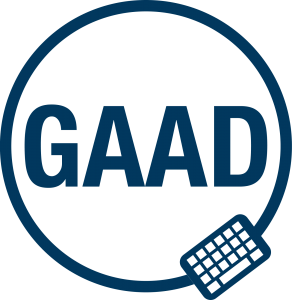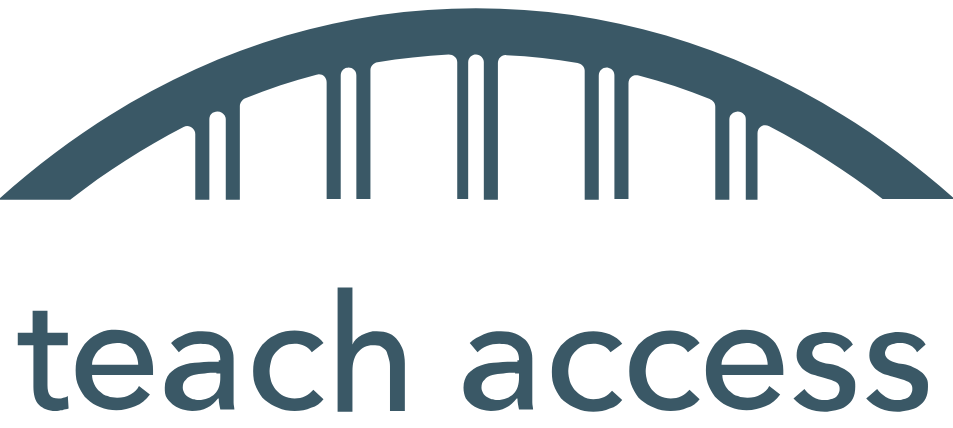The Teaching Accessibility research team is collaborating with Teach Access in the United States and accessibility researchers, educators, advocates, and professionals worldwide to publish a research topic in the Human-Media Interaction section of Frontiers in Computer Science, an open access journal. Our research topic is Advancing Digital Accessibility in Academic and Workplace Education. Submissions are open for articles covering original research as well as general commentary and opinion pieces. If you have insights and perspectives on digital accessibility teaching and learning that you’d like to share, select the Participate button on the Research Topic page to provide your contact details, so we can keep you updated.
Origins of the Research Topic
In our work researching how accessibility is taught and learned in academic and workplace contexts, we have had the benefit of hearing from a global community of researchers, educators, advocates, and professionals working to build digital accessibility capacity through education. We’ve heard about how the topic is (or isn’t) embedded in computer science, information science, software engineering, design, and other relevant disciplines. We’ve heard about the challenges of addressing the complexity of accessibility topics, building disability awareness and ethical practices alongside technical and procedural knowledge and skills. The need for digital accessibility education is clear, as is the investment among educators in developing effective pedagogy to address the unique challenges of the topic. But digital accessibility is relatively undefined and underdeveloped as a subspeciality in academic and workplace education programs. We see an opportunity to develop greater maturity in digital accessibility by setting up a forum for sharing perspectives and approaches to building digital accessibility capacity through education.
Why Frontiers?
In choosing a forum for generating interest and excitement, and building knowledge about digital accessibility education, we wanted a platform that would generate impact, allowing open access to new viewpoints from around the world. Previously, Sarah Horton on our team contributed to the Web Accessibility research topic for the same journal and section. As of this writing, the research topic page and articles combined represent 25,504 views, and Sarah’s opinion article, Empathy Cannot Sustain Action in Technology Accessibility, has 5,728 total views. This type of impact is substantial, particularly for an academic publication.
Frontiers is an Open Access platform, and articles are available to anyone without login, payment, or advertising. With open access, authors, institutions, and funders cover publishing costs through fees. Frontiers has a Fee Support Program to assist authors who have limited or no funding to cover publication fees. You can learn more about Frontiers and open access journals, and get more details about the journal, fees, and the editorial process. If you have questions about publication fees or any other aspect of the publishing process, please contact the Frontiers Editorial Office at computerscience@frontiersin.org for assistance.
Next Steps
We have a team of topic editors, with Sarah Lewthwaite, Sarah Horton and Andy Coverdale from the University of Southampton, UK, Kate Sonka from Teach Access, USA, Gottfried Zimmermann from Stuttgart Media University, Germany, Yasmine Elglaly from Western Washington University, USA, and Scott Hollier from Edith Cowan University, Australia.
Submission deadlines are:
- Abstracts: We are accepting abstracts starting now through 1 July 2022. Note that you are not required to submit an abstract to contribute.
- Manuscripts: We are accepting manuscripts from now through 31 December 2022.
Reviews are ongoing, with reviewers assigned to manuscripts as they are submitted. Articles are published once they are approved for publication by the reviewers and editors, which is much more dynamic than traditional academic publications.
If you are interested in participating, enter your details by selecting the Participate button on the Research Topic page. This will add your name and email to the system, where you will receive notifications about deadlines. And please contact us individually or through the TeachingAccessibility@soton.ac.uk email if you have any questions or concerns.
We are very excited to work with experts worldwide to forge a path toward increasing digital accessibility capacity through education, building engagement with digital accessibility, and supporting disability inclusion in the digital world.


